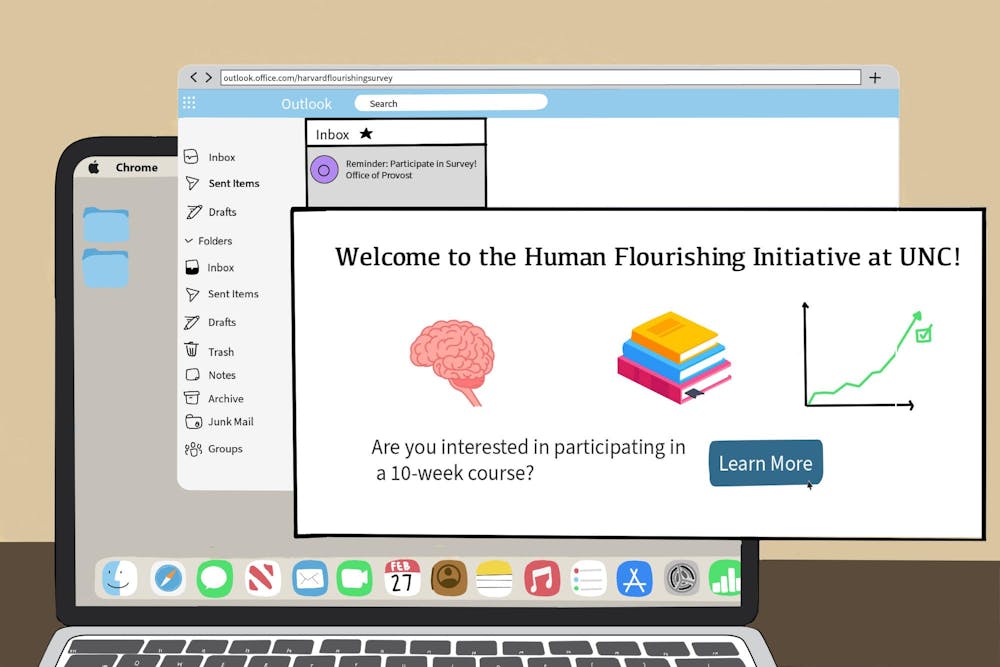Throughout January and February, undergraduate students received five emails from the Office of the Provost encouraging them to participate in the Harvard Flourishing Survey.
The three-part survey, based on items developed by The Human Flourishing Program at Harvard University, had an estimated over 10 percent response rate by Feb. 26. The Human Flourishing Initiative at UNC wrote in an email to The Daily Tar Heel saying the survey is now closed.
Ben Yates and William Cook, juniors at UNC, founded the Human Flourishing Initiative on campus after taking Larry Goldberg’s Honors 390: Elements of Politics course during the spring of their first year. The class revolved around famous literature deemed “The Great Books,” leading to seminar discussions of Aristotle, Shakespeare and Machiavelli texts.
“I think it was the first time that we had been in a context, like a formal context, to discuss those kind of deeper questions about life and purpose and humanity and all those kinds of things,” Yates said.
Once the semester ended, the pair decided to create a space to continue the conversations that began in Goldberg’s class.
In December 2023, an adviser to the Human Flourishing Initiative, Madison Perry, connected them with his former Duke University graduate school classmate Brendan Case, the associate director for research at The Human Flourishing Program at Harvard.
Case said the students shared their idea of doing a survey at UNC to assess how well students are doing at the University. His team at Harvard was working on a related project called the virtues for academic flourishing initiative.
He said that most student assessment measures at universities are deficit-oriented, meaning they are focused on identifying which students are struggling. To supplement important mental health questionnaires, he said a survey that distinguishes which students are “just doing OK” and which are flourishing can be really useful.
“We developed this new survey which was designed to assess the extent to which students were flourishing as students and the academic institutions to which they belong were flourishing as academic institutions,” Case said. “And so I suggested that it might be interesting to try to find a way to collaborate in introducing the survey onto UNC’s campus.”



